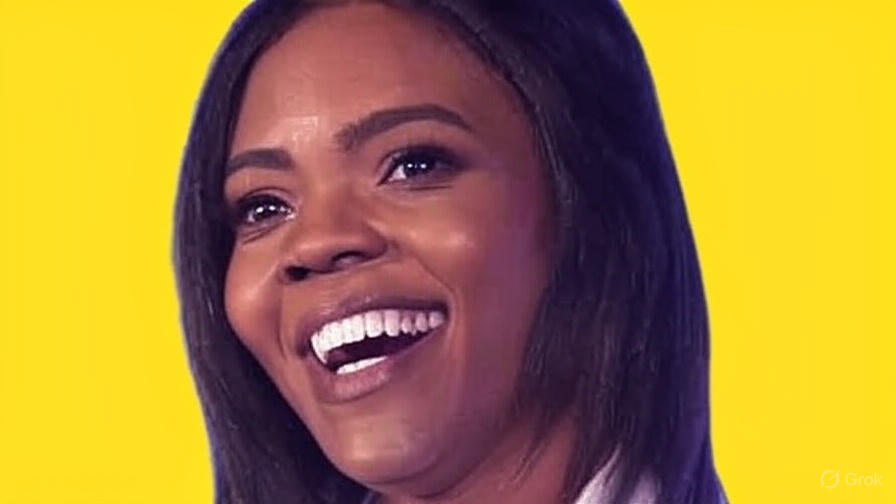Candace Owens Denied Entry to Australia: What You Need to Know
Introduction
Conservative commentator Candace Owens has officially been denied entry into Australia, sparking global discussions on the limits of free speech, immigration policies, and political controversy. The decision, upheld by Australia’s High Court, comes after concerns that Owens’ public statements could "incite discord" in the community. Here’s a detailed look at the situation, the reasoning behind the ban, and its broader implications.
Candace Owens has been denied entry to Australia over concerns she could “incite discord” in the community. pic.twitter.com/Zb0dYJkGV0
— Pop Crave (@PopCrave) October 16, 2025
Background on Candace Owens
Candace Owens is an American political activist, author, and former host at The Daily Wire. Known for her outspoken conservative views and strong support of former President Donald Trump, Owens frequently criticizes progressive movements, including Black Lives Matter.
However, her past statements—such as questioning the Holocaust and allegedly promoting anti-Semitic tropes—drew significant international backlash. These remarks formed the core of Australia’s legal rationale for denying her visa under the Migration Act’s "character test."
Owens had planned a speaking tour in Australia, aiming to address audiences on political and cultural topics. She argued that denying her entry infringed on freedom of political communication, but the High Court rejected this claim.
The Official Decision and Reasons
Australia’s Home Affairs Minister Tony Burke exercised his powers to refuse Owens’ visa, citing the risk of public discord. Minister Burke referenced her controversial rhetoric as evidence of failing Australia’s character requirements.
Australia has a history of denying entry to figures deemed potentially divisive, including conspiracy theorist David Icke and musician Snoop Dogg.
On October 15, 2025, the High Court upheld the decision, stating it did not violate constitutional protections for free speech. The ruling drew both praise and criticism:
- Supporters: View it as a stand against hate speech and extremism.
- Critics: See it as government overreach, limiting public discourse.
Public Reactions and Social Media Buzz
The decision went viral online. PopCrave’s tweet announcing the ban garnered over 1.3 million views and 54,000 likes. Public reactions were polarized:
- Pro-ban users: “That’s what she deserves for being a MAGA supporter. The black community don’t claim her at all too.”
- Free speech advocates: “They preach free speech until someone speaks too freely. Banning her doesn’t stop the conversation.”
- Humorous takes: “Australia said 'we already have spiders, snakes, and Vegemite, we don’t need extra chaos.' Candace banned like an invasive species 😂”
These reactions highlight the divisive nature of Owens’ public persona.
Broader Implications
The case raises important questions about the balance between protecting social harmony and preserving freedom of expression. Australia’s stance contrasts with U.S. First Amendment protections, emphasizing how different countries handle controversial public figures.
It also reflects global scrutiny on far-right influencers amid growing concerns over misinformation and hate speech. This decision may set precedents for other countries in vetting visitors who could disrupt public order.
FAQs
Q1: Why was Candace Owens denied entry to Australia?
A1: Her visa was denied because officials determined her past statements could incite community discord, failing Australia’s character test.
Q2: Did the High Court support the ban?
A2: Yes, the High Court upheld the decision, confirming it was lawful and did not violate free speech protections.
Q3: Has Candace Owens responded?
A3: As of now, Owens has not made a public response to the High Court’s final ruling.
Q4: Does this affect her ability to speak elsewhere?
A4: No, Owens remains free to speak in countries with stronger free speech protections, like the United States.
Conclusion
Candace Owens’ denied entry into Australia underscores the ongoing global tension between free speech and societal safety. While some celebrate Australia’s decisive action against potentially divisive figures, others view it as a cautionary tale about governmental control over discourse. Ultimately, this case invites reflection on how nations navigate political extremism, misinformation, and the delicate balance between liberty and community responsibility.


0 comments